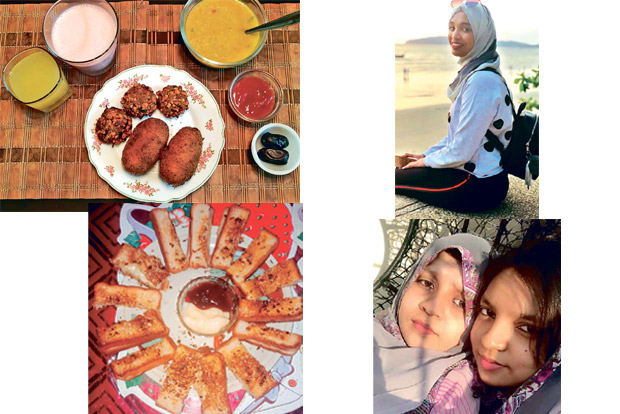Begin typing your search...
Muslims keep the spirit of the month-long Ramzan fasting by adapting to the lockdown
Millions of Muslims across the globe fast from dawn to dusk during the month of Ramzan. It is the time when streets across the city are flooded by food stalls and restaurants offering delicacies enjoyed by the community.

Chennai
But the pandemic has pushed the world upside down, bringing nations to a grounding halt and forcing people to stay indoors. Mosques that serve the traditional nombu kanji before namaz have been forced to close their doors.
The mouth-watering food walks have been called off and the option to dine at hotels that sell yummy dishes is all gone for a toss.
However, Muslims are keeping the spirit of the month-long fest alive by adapting to the lockdown. As families are at home, they are spending more time together praying and preparing food for Sehari and Iftaar.
While kanji and samosas are popular during Iftaar — the time when Muslims break their fast — the community also consumes dates, a staple part of the diet during this month, along with cold milk or rooh hafza. For Sehari — the time when Muslims eat before the beginning of a day’s fast — some prefer having light meals such as fruits or curd rice.
Residents of Gopalapuram, Asfiya and Qudsiya, say, “We start by eating fenugreek seeds which gives coolness to the stomach. Then we have some fruits like bananas and dates.”
Muslims then spend their time by working from home, reading Qu’ran and praying namaz five times a day. When day parts and gives space for night, kitchens are lit with activity as families cook together. “For Iftaar, we break our fast again with dates and milkshake with kanji. We also have vadai, cutlets or bajji. Sometimes, we don’t eat dinner as it becomes heavy,” they add.
While families who live together manage to cook and help each other, it is, however, a bit hard for those who live away from their parents.
But video calls and YouTube tutorials are helping such Muslims seek virtual guidance to cook their meals. Zulaikha, a resident of Vadapalani who now lives in the US, video calls her mother to learn new dishes.
“I talk to her while I cook and she gives me tips and shares new recipes,” says Zulaikha. “My ammi (mother) is mindful of using fewer ingredients to my meals as grocery runs have become a hassle here,” she shares.
Echoing her thoughts is Fathima from Teynampet. The homemaker has used WhatsApp to get recipes from her friends. “Whenever I think of something to make, I ask for the best recipe in a few Whatsapp groups where I know there are some good cooks,” she shares.
Perhaps the community is shifting from recipe books, passed on from generation to generation, into digital memories forwarded among tech-savvy family members.
Restaurants may be shut in the city but are still managing to serve Iftaar special boxes as a takeaway. One of Chennai’s popular diner, known for its Arabian and Hyderabadi cuisine, Abid’s is serving curated Iftaar boxes. “We offer three Iftaar boxes starting at Rs150,” the restaurant said. “It includes kanji, samosa and spring rolls. Customers can also savour our Hyderabadi dum biryani and haleem.”
Visit news.dtnext.in to explore our interactive epaper!
Download the DT Next app for more exciting features!
Click here for iOS
Click here for Android
Next Story



